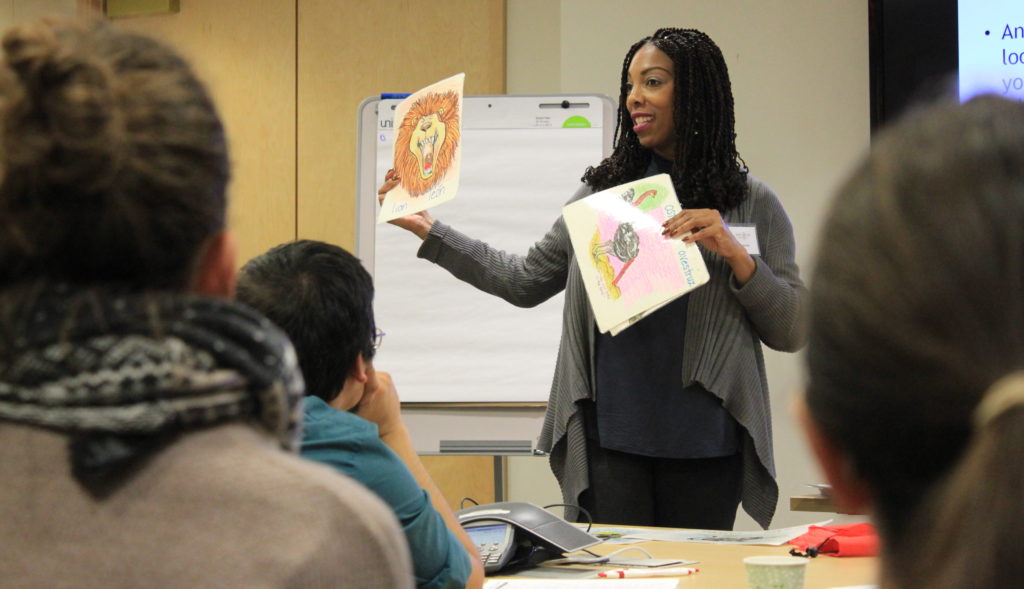
Lucinda Mills, Pupil Adjustment Counselor with the Boston Public Schools leads a workshop on Social-Emotional Learning
One of the most important, yet overlooked, aspects of a successful mentorship is the emotional growth that can come from developing a caring relationship. While academic assistance is important, it can be equally critical for mentors to understand their students’ social and emotional needs as they join them in the classroom each week.
On Wednesday, November 28, we were excited to host a workshop introducing mentors to the importance of Social-Emotional Learning (SEL). Led by special guest Lucinda Mills, a Pupil Adjustment Counselor who has worked with the Boston Public Schools for 17 years, the interactive workshop aimed to help mentors understand how BPS is addressing SEL in its schools.
As part of her presentation, Lucinda showed a video featuring the Hernandez Elementary School that gave participants insight into how dramatically SEL can improve a school’s learning environment when it is adopted into staff culture. The school’s disciplinary issues have decreased significantly, in large part due to educating students on their social and emotional growth.
As an expert in planned intervention, family outreach, and training, Lucinda was also able to offer attendees an opportunity to practice SEL skills outside of the classroom. Mentors were asked to reflect and discuss with one another many aspects of their own emotional strengths and weaknesses, such as self-awareness, self-management, interpersonal skills, and decision making. This practice highlighted to attendees that SEL does not end at school, but is rather part of an ongoing process that continues through adulthood.
Lucinda’s presentation was a great reminder that education doesn’t stop with math and language arts. With these tools and trainings, we are grateful and empowered as mentors and as school partners to provide better services to our students.
